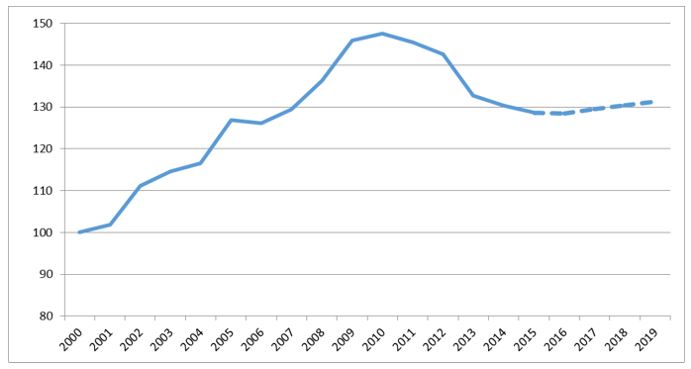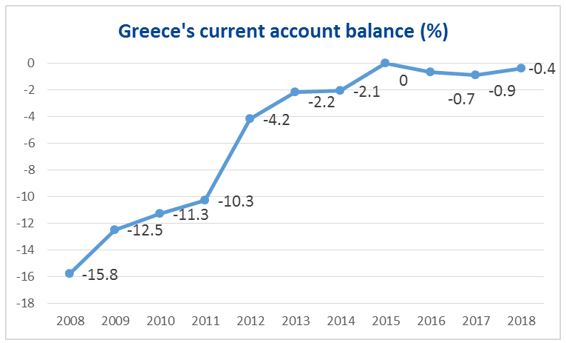Reforms: What progress has the Greek economy made since 2010?
Greece has managed to significantly reduce its macroeconomic and fiscal imbalances. An unprecedented fiscal adjustment has resulted in a decline of the general government deficit by roughly 16 percentage points of GDP, to a surplus of 0.8% in 2017 from a deficit of 15.1% in 2009. Economic growth has returned as the recovery has begun to take hold, rebounding from -5.5% in 2010 to 1.4% in 2017. The Greek economy has improved its competitiveness by reducing unit labour costs.
Nominal unit labour costs in Greece (2000=100)

Source: European Commission
The improvement can also be seen in the falling current account deficit: to -0.4% in 2018 from -15.8% in 2008.
Greece’s current account balance 2007-2018

Source: European Commission
In 2010 unemployment was at 12.7%. After reaching a peak of 27.5% in July 2013, it has now decreased to 19.5% in May 2018. While unemployment is still the highest among all EU countries, labour market conditions continue to improve. The reduction in 2017 was the greatest single year decline since the peak in 2013. More than 100,000 new jobs have been created since the start of the ESM programme in 2015.